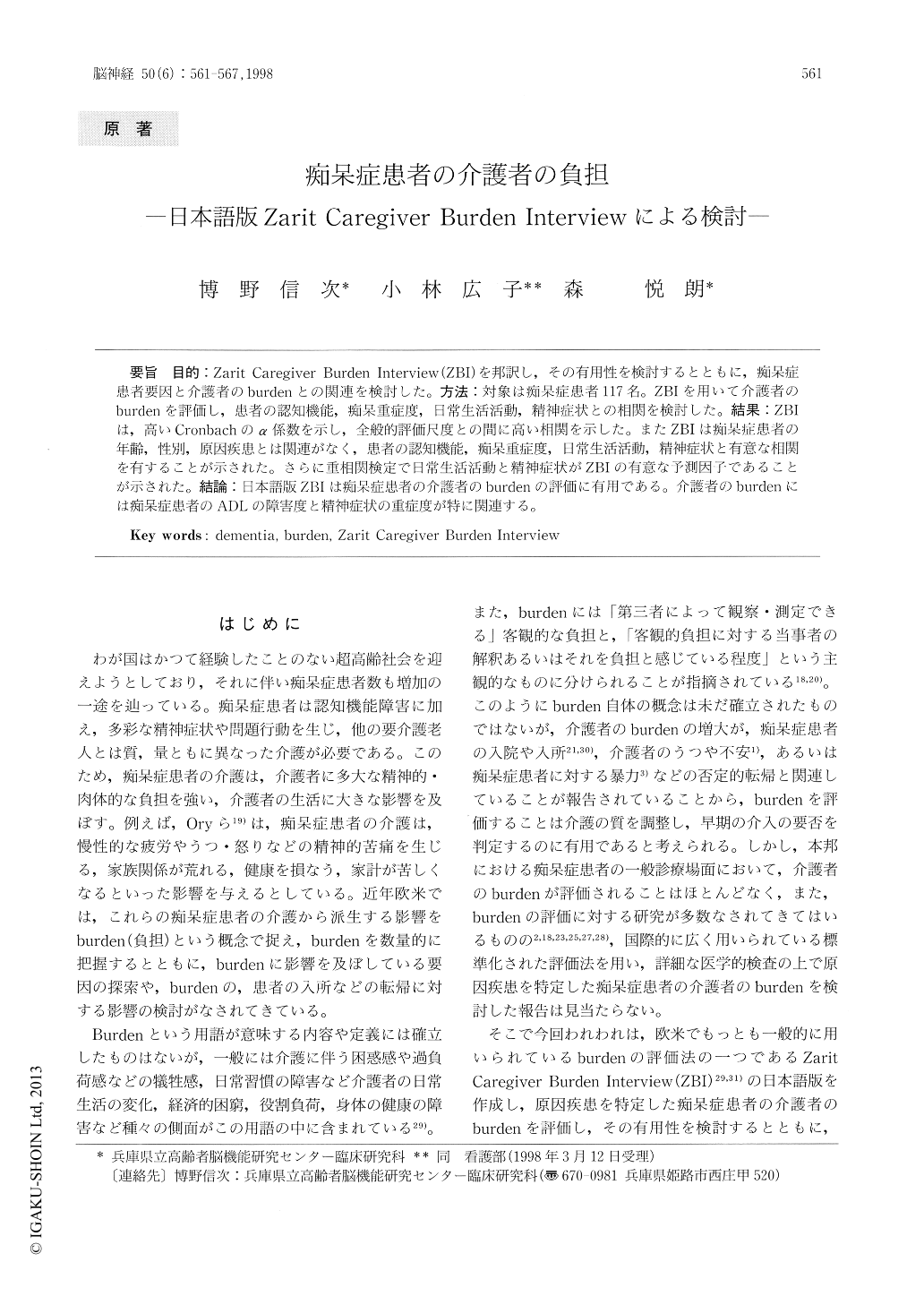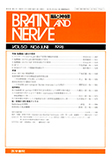Japanese
English
- 有料閲覧
- Abstract 文献概要
- 1ページ目 Look Inside
目的:Zarit Caregiver Burden Interview(ZBI)を邦訳し,その有用性を検討するとともに,痴呆症患者要因と介護者のburdenとの関連を検討した。方法:対象は痴呆症患者117名。ZBIを用いて介護者のburdenを評価し,患者の認知機能,痴呆重症度,日常生活活動,精神症状との相関を検討した。結果:ZBIは,高いCronbachのα係数を示し,全般的評価尺度との間に高い相関を示した。またZBIは痴呆症患者の年齢,性別,原因疾患とは関連がなく,患者の認知機能,痴呆重症度,日常生活活動,精神症状と有意な相関を有することが示された。さらに重相関検定で日常生活活動と精神症状がZBIの有意な予測因子であることが示された。結論:日本語版ZBIは痴呆症患者の介護者のburdenの評価に有用である。介護者のburdenには痴呆症患者のADLの障害度と精神症状の重症度が特に関連する。
Background and Purpose: Dementia patients need assistance or supervision in their daily activities. This often places a major burden on their care-givers. The caregiver burden is reportedly a critical determinant for negative caregiving outcomes. However, in Japan, no study evaluating the burden experienced by caregivers for patients with estab-lished dementia diagnosis with a standardized instrument has been carried out. The Zarit Care-giver Burden Interview (ZBI) is a standardized, validated, reliable tool for assessment of the burden of caregivers for dementia patients, and has been used in many studies in North America.

Copyright © 1998, Igaku-Shoin Ltd. All rights reserved.


